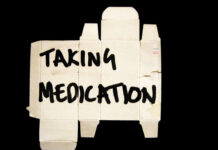Percentage of Americans on Antidepressants Nearly Doubles
From 1999 to 2012 the percentage of Americans on antidepressants increased from 6.8% to 13%, according to a report published this week by the...
Do Antidepressants Work? A People’s Review of the Evidence
After a meta-analysis of RCTs of antidepressants was published in Lancet, psychiatry stated that it proved that "antidepressants" work. However, effectiveness studies of real-world patients reveal the opposite: the medications increase the likelihood that patients will become chronically depressed, and disabled by the disorder.
Suicide in the Age of Prozac
During the past twenty years, the American Foundation for Suicide Prevention and American psychiatry have adopted a "medicalized" approach to preventing suicide, claiming that antidepressants are protective against suicide. Yet, the suicide rate in the United States has increased 30% since 2000, a time of rising usage of antidepressants. A review of studies of the effects of mental health treatment and antidepressants on suicide reveals why this medicalized approach has not only failed, but pushed suicide rates higher.
Researcher Acknowledges His Mistakes in Understanding Schizophrenia
Sir Robin Murray, a professor at the Institute of Psychiatry, Psychology, and Neuroscience in London, states that he ignored social factors that contribute to ‘schizophrenia’ for too long. He also reports that he neglected the negative effects antipsychotic medication has on the brain.
Study Finds ADHD Drugs Alter Developing Brain
A new study, published in the JAMA Psychiatry, investigates the effect of stimulant ‘ADHD’ drugs on the brains of children and young adults. The...
Rigorous Study Finds Antidepressants Worsen Long-Term Outcomes
A new study conducted by Jeffrey Vittengl at Truman University has found that taking antidepressant medications resulted in more severe depression symptoms after nine years.
Peer-Support Groups Were Right, Guidelines Were Wrong: Dr. Mark Horowitz on Tapering Off Antidepressants
In an interview with MIA, Dr. Horowitz discusses his recent article on why tapering off antidepressants can take months or even years.
Antidepressant Use Leads to Worse Long Term Outcomes, Study Finds
Results from a 30-year prospective study demonstrated worse outcomes for people who took antidepressants, even after controlling for gender, education level, marriage, baseline severity, other affective disorders, suicidality, and family history of depression.
New Study Concludes that Antidepressants are “Largely Ineffective and Potentially Harmful”
A new study published in Frontiers in Psychiatry concludes that “antidepressants are largely ineffective and potentially harmful.”
The Case Against Antipsychotics
This review of the scientific literature, stretching across six decades, makes the case that antipsychotics, over the long-term, do more harm than good. The drugs lower recovery rates and worsen functional outcomes over longer periods of time.
Is Long-term Use of Benzodiazepines a Risk for Cancer?
A large study of the population in Taiwan reveals that long-term use of benzodiazepine drugs, commonly prescribed for anxiety, significantly increases the risk for brain, colorectal, and lung cancers. The research, published open-access in the journal Medicine, also identifies the types of benzodiazepines that carry the greatest cancer risk.
Very Slow Tapering Best For Antidepressant Withdrawal
A new article in Lancet Psychiatry finds that slower tapering of SSRIs is better for preventing antidepressant withdrawal effects.
Study Examines Experience of Long-Term Antidepressant Use
The use of antidepressants has increased substantially in recent years, yet relatively few studies have asked patients about their experiences with these drugs. A...
Cognitive Impairment from Long-Term Benzodiazepine Use Remains Even After Drug Withdrawal
Long-term benzodiazepine use shown to effect cognitive function during current use and for years after drug discontinuation.
Initial Trial of Ayahuasca for Depression Shows Promising Results
Ayahuasca found to be effective in treating moderate to severe depression in low-income population.
Reasons Not to Believe in Lithium
‘I Don’t Believe in God, But I Believe in Lithium’ is the title of Jamie Lowe’s moving account of her manic depression in the New York Times. The piece reminds us how devastating and frightening this condition can be, so it is understandable that the author put her faith in the miracle cure psychiatrists have been recommending since the 1950s: lithium. The main problem is that there is no study in which people who have been started on lithium have been compared with people who haven’t.
New Data Show Lack of Efficacy for Antidepressants
An article published this month in the journal BMC Psychiatry suggests that there is a lack of efficacy for SSRIs and that they significantly increase the risk of serious side effects.
Antidepressant Use Linked to Dementia
A new study finds that elderly individuals using antidepressants are at significantly higher risk for dementia compared to depressed individuals who did not take the drugs.
Depression: It’s Not Your Serotonin
What if I told you that, in 6 decades of research, the serotonin (or norepinephrine, or dopamine) theory of depression and anxiety - the claim that “Depression is a serious medical condition that may be due to a chemical imbalance, and Zoloft works to correct this imbalance” - has not achieved scientific credibility? You’d want some supporting arguments for this shocking claim. So, here you go:
Lithium and Suicide: What Does the Evidence Show?
There appears to be increasing acceptance of the idea that lithium prevents suicide, and even that it can reduce mortality rates. For a toxic drug that makes most people feel rather depressed, this seems curious. I did wonder whether it might be having this effect on suicide by sapping people of the will to act, but the proposed effect on mortality seems completely inexplicable. A closer look at the evidence, however, suggests the idea is simply not justified.
Gradual Tapering is Most Successful for Withdrawal from Antipsychotics
Mixed-Methods study explores the experiences of antipsychotic discontinuation among service users.
When Psychiatric Medications Cause Psychiatric Symptoms
Dr. Yolande Lucire, a psychiatrist from Australia, recently published a paper about the iatrogenic effects of psychiatric drugs.
The Reckoning in Psychiatry Over Protracted Antidepressant Withdrawal
Medically-induced harm—affecting tens of millions of people worldwide—has taken the field decades to take seriously.
Over 1,000 Antidepressant Users Describe how Their Personal Life has Been Affected
Survey examines adverse personal and interpersonal effects of antidepressants and the impact of polypharmacy
Danish Study Finds Better 10-year Outcomes in Patients Off Antipsychotics
Study finds that 74% of patients with a psychotic disorder off antipsychotics at end of 10 years are in remission.




























